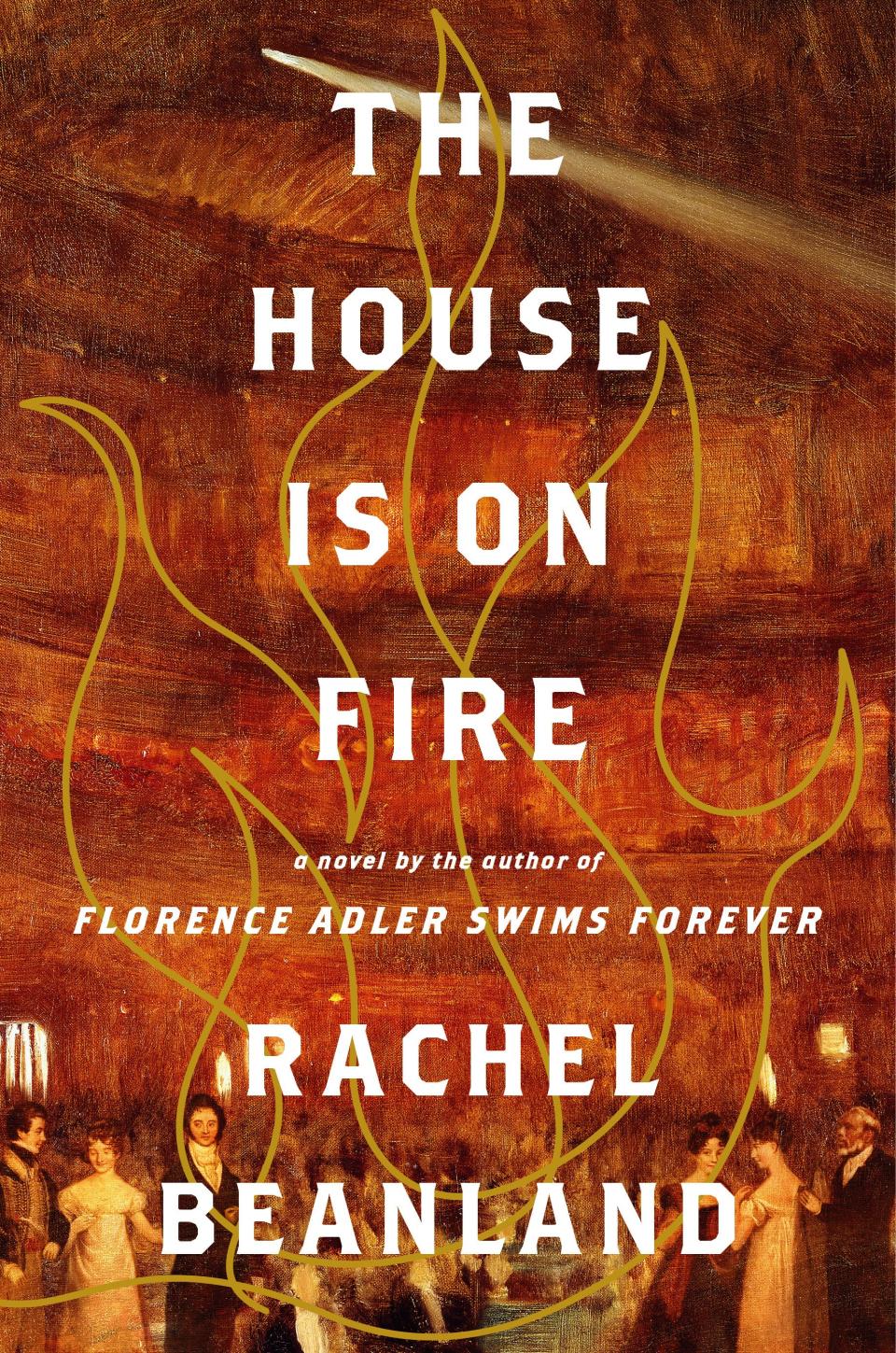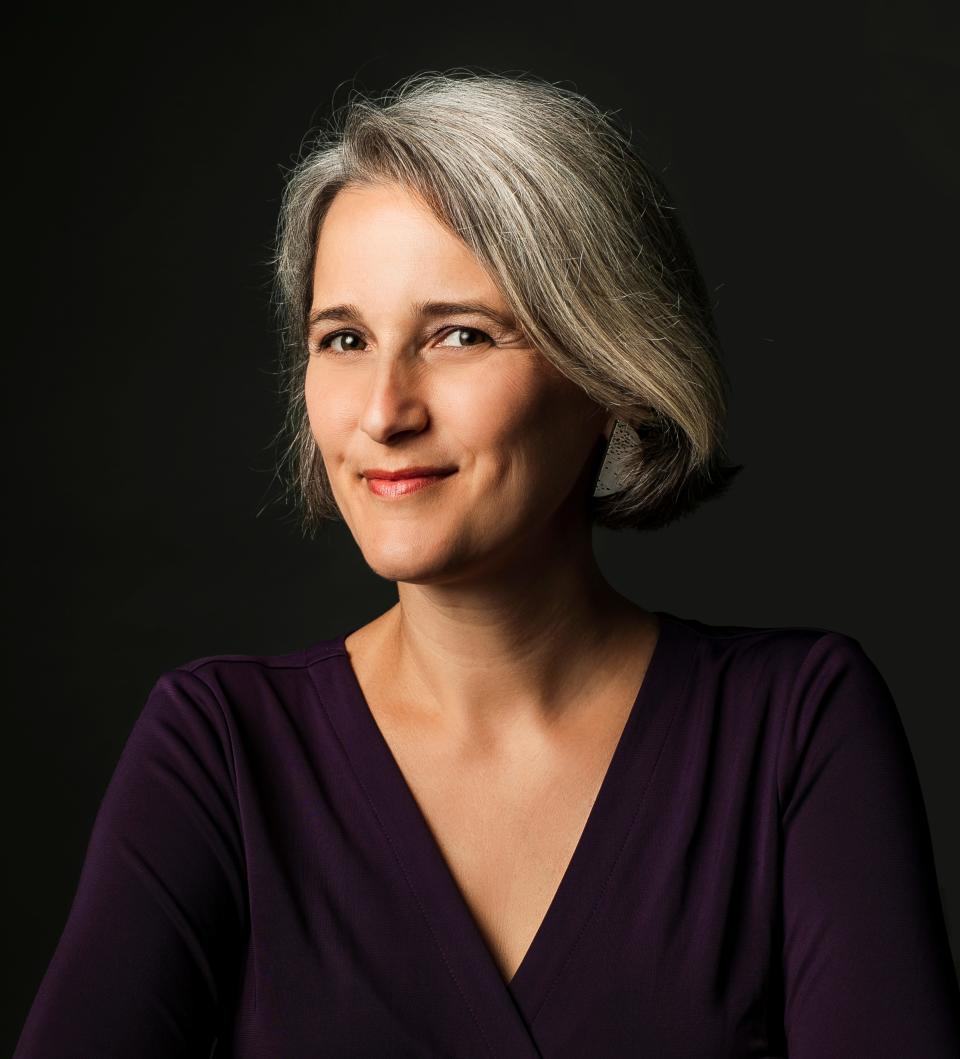Book dealing with slavery 'not the right choice' for Mandel JCC's annual lunch in Gardens
The Richmond Theatre held more than 6% of the Virginia capital’s population when it burned to the ground in 1811, killing more than 70 of the 600 people inside and becoming the worst urban disaster to strike the new nation so far.
The racial and gender inequities the blaze laid bare stretched beyond the time and place where it occurred. All of it became the basis for The House is on Fire, a fictionalized examination of the tragedy.
In May, the organizers of the Mandel Jewish Community Center's 2024 annual book lunch asked the book's author, Rachel Beanland, to be the main speaker at its $100-a-seat event at the Frenchman’s Reserve Country Club in Palm Beach Gardens.

In the months that followed, Florida’s Department of Education announced a new framework for teaching Black history that would include discussion of the supposed benefits of slavery to enslaved people.
Gov. Ron DeSantis, who has pushed for other changes to education practices that include restrictions on discussion of gender identity and sexual orientation, defended the new framework as one that could highlight how an enslaved blacksmith might have the chance to learn a marketable skill.
In mid-August, a JCC staff member shared a quandary with the author:
“This is Florida,” the staff member wrote, “and our politics around the Black community, the history of the Civil War, and education in general are … complicated.”
The staff member had a question, “I would love to hear from you, as the author, about the direction we might lean in for this event to be successful and uplifting.”
'Black facts, not fiction:' Dozens blast 'revisionist' state standards on slavery history

Beanland responded that in addition to discussing the fire, her decision to write about it, the research she undertook and her choices in how to write about it, she would also be happy to discuss her writing career.
“Because The House is on Fire is set in 1811 Richmond,” she added, “any presentation I give is likely to address slavery and the rights of women.”
There it lay for more than two weeks when the staff member wrote again on Aug. 30 to rescind Beanland's invitation from the event. She apologized that the decision had been delayed by the time it took committee members to read the book.
“Also,” she added, “our decision is very much affected by the current political climate here in Florida.”
Beanland posted the exchange on her Instagram account the following day, adding that “it is a fact that slavery existed and that Black Americans are still feeling the repercussions of that injustice. When we allow people in Florida (or elsewhere) to throw facts out the window, our democracy grows ever more fragile.”
Staffer who brought up Florida's political climate fired for other reasons
JCC Chief Executive Officer Jesse Rosen contacted Beanland Friday to apologize for words that he said did not represent the organization’s values. By then, he said, the staff member had been fired for other reasons.
By then, a column in the Richmond Times Dispatch also had amplified Beanland’s message.
On Sunday, Rosen told The Palm Beach Post the organization planned to release a public apology, and on Monday it posted that apology to its Instagram page.
In New York, the Jewish Book Council, which had arranged Beanland’s event as one of 1,400 annual author appearances at Jewish Community Centers it facilitates nationwide, lauded the apology, adding that the council hoped it would be backed by the organization re-issuing its invitation for Beanland to speak at the event.
SCHOOLS: In Palm Beach County, leaders 'shocked, dismayed' by new Black history curriculum
By Tuesday morning, Rosen had sent Beanland an email re-inviting her to speak at the luncheon as “originally scheduled.”
Speaking to The Post immediately after sending the re-invitation, Rosen said he hoped Beanland would accept, “so she can see what we’re really like.”
'House is on Fire' 1811 subject overlaps with last year's discussion of the Civil War
The concerns leading up to the decision to cancel the author’s appearance, however, remain unclear.
On Sunday, Rosen emphasized the organization’s commitment to diversity. Book events had demonstrated that commitment, “historically, and as recently as last year,” he said, when the lunch featured the authors of a book about the Civil War.
But it was the preceding year’s focus on a book about the war, he also said, that made committee members question the choice of this year’s book.
“It was about topic selection,” Rosen said Sunday, adding that scheduling Beanland for this year’s lunch would cause “an overlap.”
The overlap, he said, between the book about an 1811 theatre fire and the war that half a century later nearly permanently divided the United States was that both took place “in the 1800s.”
Rosen called part of the book that described the life of a young enslaved woman who is repeatedly raped by the son of the man who owns her “challenging” for committee members.
Beanland, who tracks events following the fire through the eyes of four people who were there, says both history and motivations that needed to be credible drove the dramatic action in the book.
The characters include:
A young white stagehand who bore some responsibility for the fire;
An enslaved blacksmith recognized even then as a hero for saving the lives of at least a dozen women trapped by the fire;
A widowed white woman who questions why more than five times as many women than men perished in the fire;
And the enslaved young woman, who used the fire as a chance to escape.
For a young woman to make a split-second decision to leave the only family and only place she has ever known, the reason had to be strong, Beanland said.
Rosen said on Sunday that the organization had sought to switch only the dates of Beanland’s appearance and that the cancellation of her January lunch talk had been accompanied by an invitation to come to its November book fair, for which the book “would be a better fit.”
The organization would have welcomed her appearance then, he said, but that she had turned that option down.
Beanland on Tuesday thanked Rosen for JCC’s renewed invitation to the January lunch but declined it as well.
“Maybe in a future year,” she added, “when the Mandell JCC is under different leadership.”
In the meantime, she wrote in her email response to Rosen, “I am glad to hear that the board is actively considering ways to ensure this doesn't happen again. It's important work.”
This article originally appeared on Palm Beach Post: JCC, Jewish center disinvites author of book on slavery, racism

